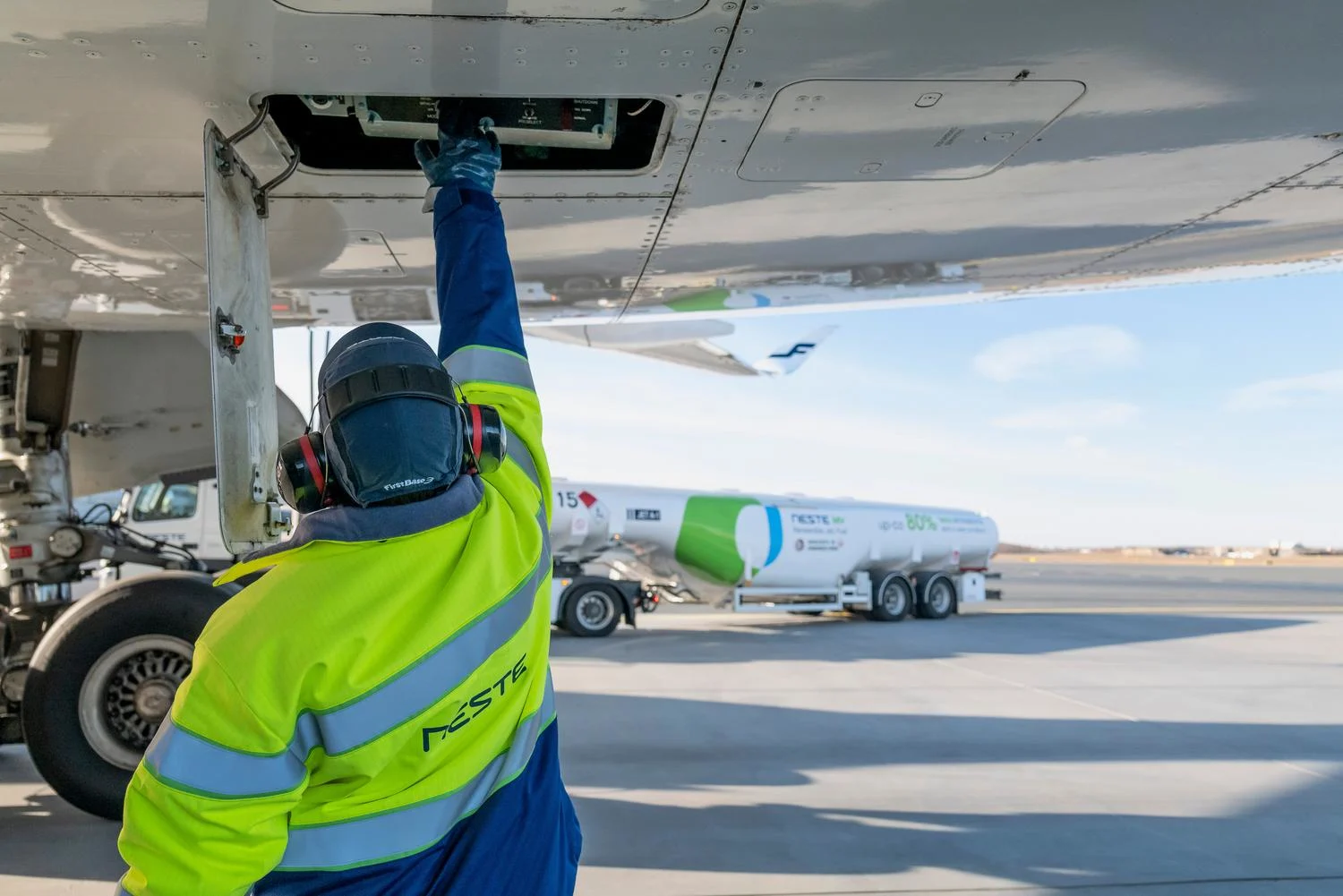The aviation industry must become more sustainable
Aviation is an indispensable part of how we live and work. From global business to life-saving transportation, we’ve come to rely on flying as a safe, fast, and reliable means of movement. But today, our planet demands that it be something more: sustainable.
Aviation currently accounts for approximately 2 to 3% of global carbon emissions. Counting non-CO2 emissions, its overall contribution to climate change is significantly higher — and likely to rise as demand for air travel keeps increasing. The world needs a solution to decarbonize the aviation industry today.
2-3%
Aviation currently accounts for approximately 2 to 3% of global CO2 emissions.
200%
According to IATA projections air travel is going to double by 2040.
The industry can take action now
Solving the sustainability issue is an urgent one that requires immediate solutions. This is leading organizations to think and act differently when it comes to flying, with many asking how they can support climate action and decarbonization today.
Sustainable aviation fuel (SAF) provides a key solution available today. It is a direct replacement for fossil jet fuel, made from renewable raw materials, and reduces greenhouse gas emissions by up to 80%* over the fuel’s life cycle compared to using fossil jet fuel. It is a safe and proven solution used in existing aircraft without the need for modifications.
The International Air Transport Association (IATA) has set goals for carbon-neutral growth from 2020 onwards and net-zero carbon emissions from aviation by 2050. In order to achieve this, IATA estimates that Sustainable Aviation Fuel can deliver approximately 65% of the emission reduction required to get to net zero, leading numerous airlines and other aviation stakeholders to start using SAF, and in many cases, to set specific targets for SAF use. Adoption of SAF is also increasingly being driven by supporting policies such as mandates, as governments seek to take meaningful action on climate change now.

Neste: Pioneering the future of aviation
Over the past ten years, Neste’s transformation journey has taken the company from a regional oil refiner to becoming a global leader in renewable and circular solutions. Today, Neste is the world’s leading producer of sustainable aviation fuel and renewable diesel.
Sustainability leader
Neste's sustainability vision sets high standards for climate, biodiversity, human rights, supply chain and raw materials, and steers our journey of growth and transformation. We have set ambitious targets to support our customers to reduce their GHG emissions by at least 20 million tons of CO2e annually by 2030 and to reach carbon neutral production by 2035 (scope 1 & 2). Neste has consistently been included in the Dow Jones Sustainability Indices and the Global 100 list of the world’s most sustainable companies.
Driven by innovation
Innovation is in Neste's DNA and it has enabled our transformation towards global leadership in renewable and circular solutions. About 25% of our staff is dedicated to research and development. We are investing in innovating in new renewable and recycled products and developing new technologies to diversify our raw materials portfolio by unlocking promising new raw materials, including lignocellulosics, algae, municipal solid waste and Power-to-liquids (PtX).

Releases and news
Read about how we are creating a healthier planet for our children.
* Calculated for neat i.e. unblended SAF with established life cycle assessment (LCA) methodologies, such as CORSIA methodology.


